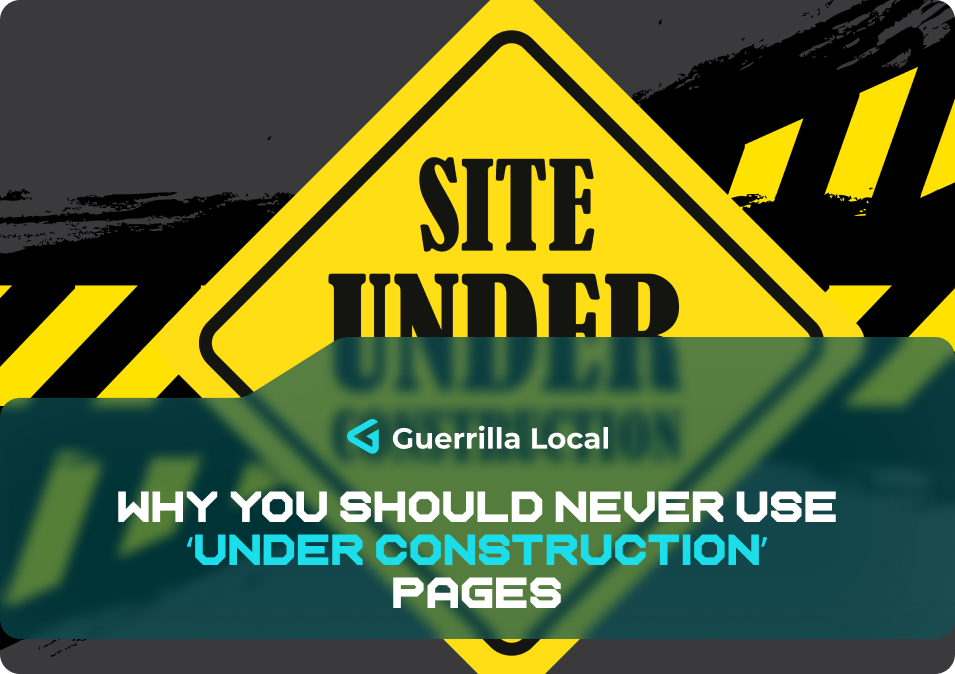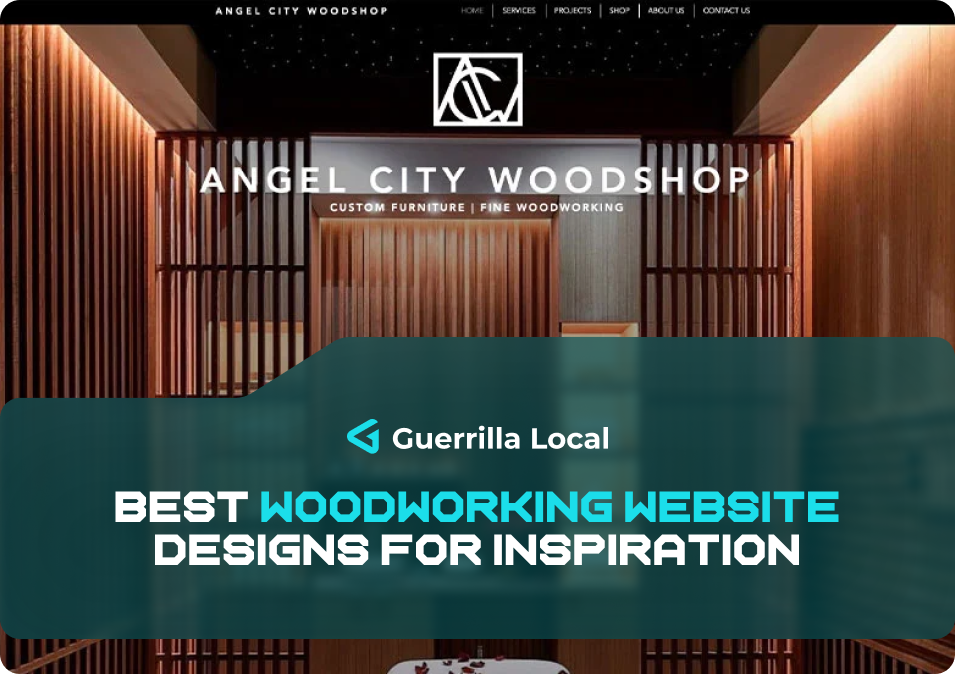To create a marketing plan for a construction company, set clear objectives, identify your target audience, and allocate a budget. Research competitors, optimize your website, and utilize both organic and paid marketing strategies. Engage with clients on social media, employ email marketing, and track key performance indicators for success.
Table of Contents
What Are Steps To A Successful Marketing Plan For Construction Company?
1. Set Your Objectives
Setting clear objectives is the foundation of any effective marketing plan. Without objectives, your efforts may lack direction and purpose, similar to embarking on a road trip without a destination in mind. To ensure a successful marketing plan, consider the following objectives:
Increase Brand Awareness
Building brand awareness is essential for gaining recognition and trust in the construction industry. Establishing a strong brand presence can lead to increased credibility and visibility.
Get More Leads
Generating leads is a primary goal for many construction companies. Effective marketing can help you attract potential clients who are interested in your services.
Boost Sales Revenue
Ultimately, marketing aims to increase revenue. A well-executed marketing plan can lead to higher sales and improved profitability.
Increase Website Traffic
A construction website is often the first point of contact for potential clients. Increasing website traffic can result in more inquiries and business opportunities.
Get More Social Media Followers
Social media is a powerful tool for engagement and communication. Growing your social media following can enhance your brand’s reach and influence.
To set realistic objectives, conduct thorough market research, identify industry trends, and analyze growth opportunities. The more data you gather, the better equipped you’ll be to create a comprehensive marketing plan.
2. Identify Your Target Audience
Understanding your target audience is crucial for tailoring your marketing efforts effectively. Your construction company may serve various types of clients, such as private, government, residential, or commercial projects. To identify your target audience, ask yourself the following questions:
What kind of projects is your company looking to take on?
Identify the types of construction projects your business specializes in or intends to pursue.
Are you doing B2B marketing, B2C marketing, or a mix of both?
Determine whether your target audience consists of businesses (B2B) or individual consumers (B2C), or if it’s a combination of both.
What kind of budget do those in your target audience have?
Understanding the budget constraints and preferences of your target audience will help tailor your marketing messages effectively.
Identifying these key elements will enable you to create marketing messages that resonate with your audience’s specific needs and pain points.
3. Plan Your Budget
Once you’ve clarified your objectives and defined your target audience, the next step is to plan your marketing budget. The U.S. Small Business Administration recommends that small businesses allocate between seven and eight percent of their revenues to marketing. This guideline provides a starting point for determining your budget.
For example, if your construction company generates $1 million in revenue, your marketing budget should fall within the range of $70,000 to $80,000. It’s important to allocate your budget carefully to cover various aspects, including:
- Paid advertising
- Marketing tools and software
- Compensation for marketing personnel
- Website development and maintenance
Staying within budget is crucial to avoid dipping into your company’s revenue, which can be detrimental to your financial stability and investor confidence. Additionally, focus on marketing efforts that yield a solid return on investment (ROI) to maximize the effectiveness of your budget.
4. Check Out Your Competitors
Competitor analysis is a vital component of your construction company’s marketing plan. Ignoring your competitors can result in lost business opportunities. To stay competitive, include the following steps in your marketing plan:
Identify Your Top Competitor
Identify your primary competitor in the construction industry. Understanding their strategies can provide valuable insights.
Evaluate Their Website
Examine your competitor’s website to gain insights into their online presence, user experience, and content quality.
Analyze Their Paid Advertising
Review their paid advertising campaigns to identify keywords, messaging, and ad placements.
Monitor Their Content
Study the type and frequency of content your competitor produces, such as blog posts, case studies, and whitepapers.
By analyzing your competitors, you can plan strategic marketing moves. For instance, if you discover they are targeting specific keywords in their paid advertising, consider incorporating those keywords into your campaigns.
5. Optimize Your Construction Website (SEO)
When coming up with a marketing plan for a construction company, your website is a vital asset for attracting and converting leads. Research indicates that 88% of consumers conduct online research before making a purchase decision. Therefore, ensuring your website is easily discoverable is critical. Here are key strategies for optimizing your construction website:
Identify Target Keywords
Determine the keywords you want your construction company to rank for in search engine results. These keywords should align with your services and the needs of your target audience.
Use Alt Tags
Optimize images on your construction website by adding descriptive alt tags. Alt tags improve accessibility and assist search engines in understanding your content.
Publish Relevant Content
Consistently publishing relevant and informative content on your construction website can enhance its authority and relevance. This can lead to improved search engine rankings.
Fix 404 Errors and Broken Links
Ensure there are no broken links or 404 errors on your construction website, as these can negatively impact user experience and SEO.
Optimize Meta Descriptions
Craft compelling meta descriptions for your web pages. These descriptions appear in search results and can influence click-through rates.
Additionally, consider implementing a local SEO strategy to enhance visibility for location-based searches. Setting up and maintaining a Google Business Profile listing, encouraging client reviews, and creating localized content can boost your local SEO efforts.
By optimizing your construction website, you increase its chances of appearing in search results, making it easier for potential clients to find your services.
6. Organic Marketing Plan For Construction Company
Organic marketing is a valuable strategy for driving brand awareness and growth for your construction business. Unlike paid advertising, organic marketing focuses on generating traffic naturally, without the need for paid promotions. Here are the key components of an organic marketing strategy:
Writing Blogs
Consistently creating informative blog content can establish your company as an industry authority and improve your construction website’s visibility.
Creating Engaging Social Media Accounts
Active and engaging social media profiles can help you connect with your audience, showcase your work, and build a loyal following.
Publishing Case Studies
Highlight successful projects through case studies. These provide evidence of your company’s capabilities and achievements.
Allowing Guest Posts on Your Website
Inviting guest contributors to share their expertise can broaden your content offerings and attract new audiences.
Utilizing Hashtags on Social Media
Strategically using hashtags on social media platforms can extend your reach to a broader audience interested in construction services.
Organic marketing is essential for building long-term brand awareness and trust. However, it may take time to see significant results. Therefore, consider it a complementary strategy alongside other marketing efforts.
7. Invest In Paid Advertising
Paid advertising can deliver rapid and targeted results for your marketing campaigns. This strategy involves paying to promote your company’s name and offerings. While traditional advertising methods like TV, radio, and newspaper ads still exist, digital advertising is gaining prominence. Statistics indicate that pay-per-click (PPC) advertising can yield 50% more conversions than organic advertising.
When planning paid advertising for your construction company, consider investing in various platforms and channels, including:
Facebook Ads
Facebook ads allow you to target specific demographics and interests, making it an effective platform for reaching your desired audience.
Google Ads
Google Ads enables you to display your ads in search results and on relevant websites, helping you capture potential clients actively seeking construction services.
Display Ads
Display ads appear on websites, apps, and social media platforms, increasing your brand’s visibility across the internet.
Instagram Ads
If your target audience is active on Instagram, consider running visually appealing ads to engage potential clients.
YouTube Ads
Video advertising on YouTube can be an effective way to showcase your construction projects and expertise.
Before investing in paid advertising, conduct thorough research to identify the right platforms and keywords that align with your goals. Targeting the wrong keywords and audiences can lead to budget wastage.
8. Engage Clients with Social Media Marketing
Social media marketing plays a significant role in modern marketing strategies. With web users spending an average of 142 minutes per day on social networking and messaging platforms, it’s essential to harness the power of social media. Here’s how to effectively engage clients through social media:
Tailor Your Strategy to Your Target Audience
Customize your social media strategy based on your target audience’s preferences and the platforms they frequent. Different platforms cater to different demographics and industries.
Incorporate Video Marketing
Video content remains highly engaging and shareable. Consider creating video content that showcases your construction projects, expertise, and behind-the-scenes glimpses of your company.
Post Regularly and Consistently
Consistency is key in social media marketing. Develop a content calendar and schedule posts to maintain a steady online presence.
Interact and Respond
Engage with your audience by responding to comments, messages, and inquiries promptly. Building a responsive and attentive online presence can foster client trust and loyalty.
Analyze Metrics
Use social media analytics tools to track the performance of your posts and campaigns. Analyzing metrics like engagement, reach, and conversions can help refine your strategy.
Effective social media marketing can help you build brand loyalty, reach new clients, and showcase your construction expertise to a wide audience.
9. Connect Via Email Marketing
Email marketing is a powerful tool in your marketing arsenal, capable of bringing in substantial business when executed strategically. To make the most of email marketing, consider the following:
Segment Your Email List
Segmenting your email list allows you to send targeted messages to specific groups. For example, you can create segments for new leads, previous clients with upcoming projects, or seasonal clients.
Monitor Email Metrics
Track key email metrics such as open rates, click-through rates, and conversions. These insights can guide adjustments to your email marketing strategy.
Create Valuable Content
Craft compelling email content that provides value to your recipients. Share industry insights, project updates, and exclusive offers to keep your audience engaged.
Test and Optimize
Experiment with different email subject lines, content formats, and sending times to optimize your email marketing campaigns.
Email marketing, when done strategically, can yield a high return on investment and help nurture leads into loyal clients.
10. Track Your Success (Key Performance Indicators)
After implementing your marketing plan, it’s essential to measure its effectiveness. Key Performance Indicators (KPIs) are metrics that indicate the success of your marketing efforts. Here are some KPIs to consider for your construction company’s marketing plan:
Number of Conversions
Measure the number of conversions, such as inquiries, quote requests, or project bookings, generated through your marketing activities.
Cost Per Channel
Determine the cost associated with each marketing channel or campaign to assess their efficiency.
Weekly/Monthly Leads Generated
Track the number of construction leads generated on a weekly or monthly basis to monitor the growth of your client base.
Weekly Web Traffic Per Channel
Analyze the web traffic driven by each marketing channel to identify the most effective sources of website visitors.
Average Time of Conversion
Measure the average time it takes for leads to convert into paying clients. This can help you assess the efficiency of your sales funnel.
Setting clear marketing goals and aligning them with specific KPIs is essential for measuring your marketing plan’s success. Ensure that your goals are attainable and support your company’s growth objectives.
Conclusion
Construction companies must adopt creative and strategic marketing efforts, akin to following a comprehensive marketing guide, to stand out in a competitive landscape. To achieve success, your marketing plan should focus on three key objectives: building your brand, attracting new leads, and demonstrating your value to the world. By implementing the 10 proven strategies outlined in this article, your construction business can unlock new opportunities and drive revenue growth.
Contact Guerrilla Local today to prepare an outstanding marketing plan tailored to your construction business’s unique needs and goals.
FAQs
How do I create a marketing plan for a construction company?
To create a marketing plan, start by setting clear objectives, identifying your target audience, and allocating a budget. Research your competitors, optimize your website, and consider both organic and paid marketing strategies.
How do I market my construction business?
Market your construction business by showcasing your projects through photos and videos, building a strong online presence, networking with industry professionals, and leveraging social media platforms to engage with potential clients.
How do I promote my small construction business?
Promote your small construction business by offering quality work, seeking referrals from satisfied clients, creating a professional website, and utilizing local SEO to appear in local search results.
How do construction companies find customers?
Construction companies can find customers through networking, online marketing, partnerships with real estate agents, attending trade shows, and joining local business associations.
How do construction contractors get clients?
Contractors can get clients by building a strong reputation, asking for referrals from satisfied clients, utilizing online platforms like Houzz and Angie’s List, and advertising through targeted marketing campaigns.
How much profit should a construction business make?
Profit margins in the construction industry can vary, but a typical target is around 10-15% of total revenue. However, profitability depends on factors like project size, overhead costs, and location.
How much should a construction company spend on marketing?
Construction companies should allocate between 7-8% of their annual revenue to marketing. The specific budget will depend on the company’s size and goals.
How do contractors market themselves?
Contractors can market themselves by creating a professional website, showcasing their portfolio, obtaining certifications, seeking online reviews and testimonials, and maintaining a strong online presence.
What are the marketing objectives of a construction company?
Marketing objectives for a construction company may include increasing brand awareness, generating more leads, boosting sales revenue, increasing website traffic, and expanding their social media following.
How can I make my construction company more profitable?
To make your construction company more profitable, focus on cost management, efficient project planning, effective marketing, and delivering high-quality work. Continuously analyze your financials and look for opportunities to improve efficiency.






